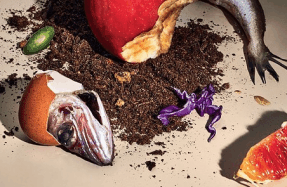
"SCIENCE DOESN’T move in a straight line,” says Stéphane Bancel, “especially with cuttingedge science that no human has done before you.” The 50-year-old CEO of the biotech company Moderna is familiar with circuitous journeys and unexpected turns of fate.
Founded in 2010 by a group of influential scientists from Harvard and MIT, Moderna spent its first decade pursuing research into the then-novel idea of using mRNA as a platform to create vaccines and drugs that essentially manufacture themselves in a patient’s body. But by early 2020, it still didn’t have a single product on the market. It did, however, have six vaccines in Phase 1 trials, and was working on one against MERS, a type of coronavirus. And it had built a 150,000-square-foot facility in the Boston suburb of Norwood, ready to mass-produce rnRNA vaccines. Just in case.
When the genetic sequence of a novel coronavirus from China was made public on January 11, 2020, Moderna was ready. It tapped its mRNA platform to develop a new vaccine candidate, and on December 18, 2020, it obtained FDA emergency use authorization (EUA) for a COVID-19 vaccine, marking one of the shortest vaccine-development cycles ever. (The FDA issued an EUA for the Pfizer-BioNTech COVID-19 vaccine just one week earlier.) The company produced billions of doses over the next couple of years, driving annua] revenue from $60






